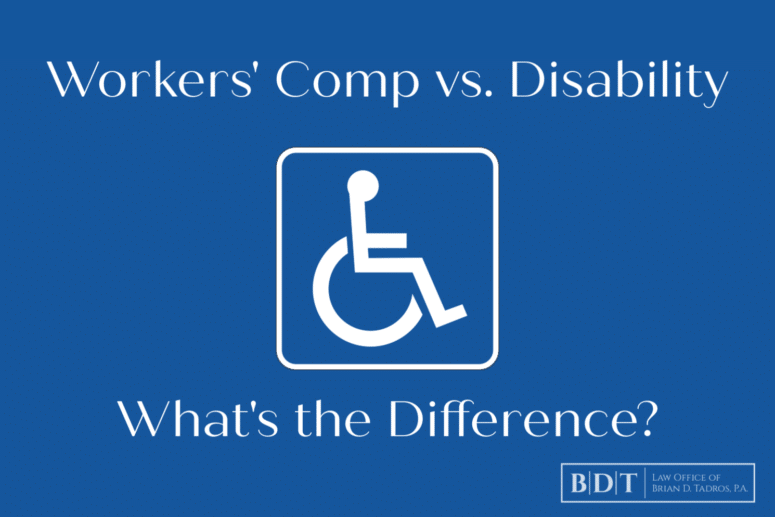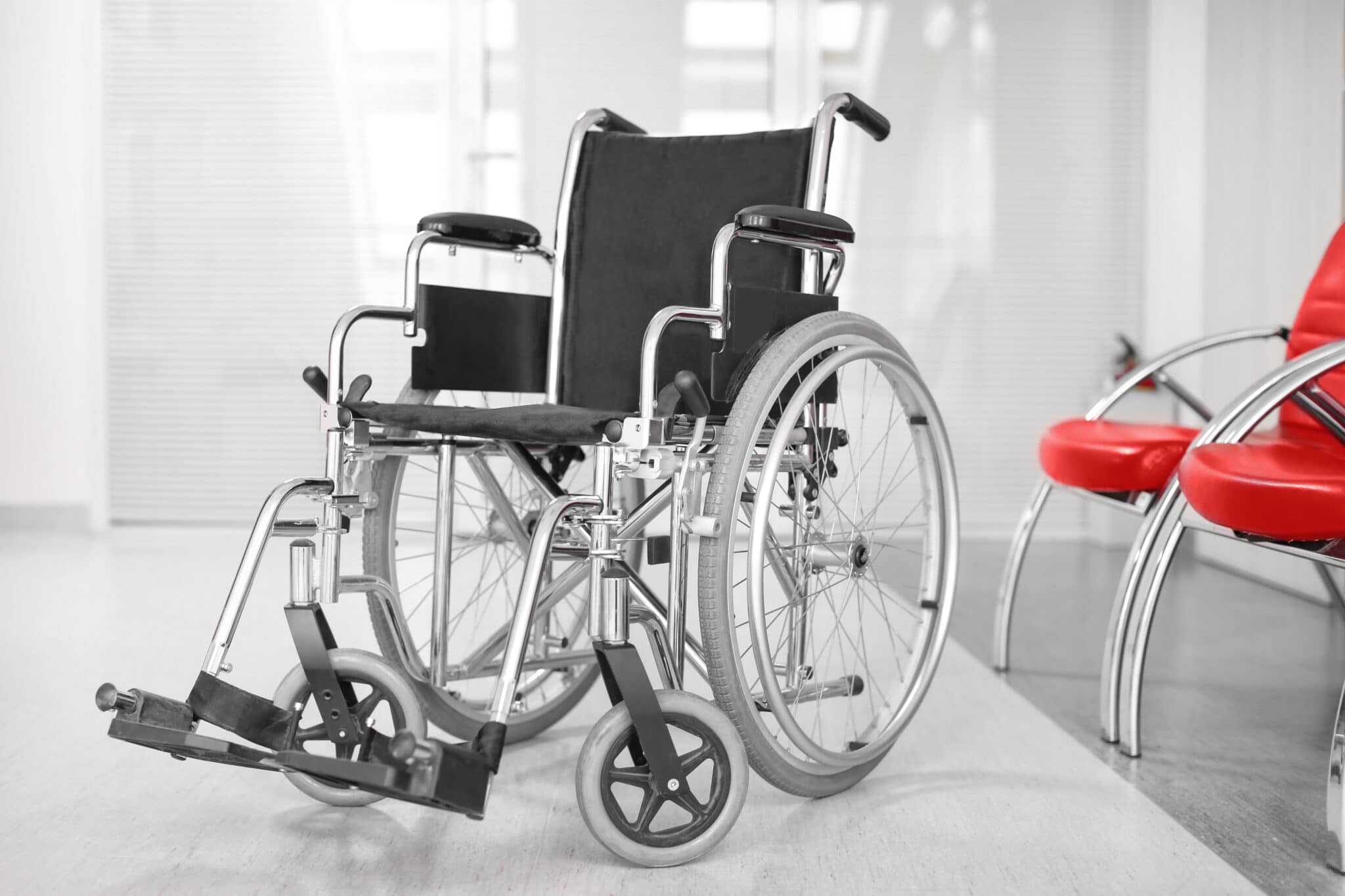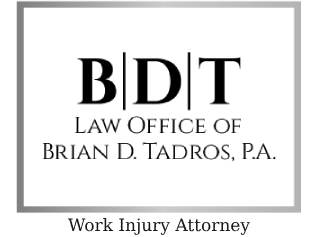
If you are suffering from a workplace injury or occupational disease, it can be hard to know what to do next.
Conflicting information from your co-workers, your employer, and the internet can quickly leave you feeling overwhelmed and confused.
“Will I be able to return to work? What if I’m permanently disabled? How will I pay my bills?”
As it turns out, there is a difference between workers’ compensation and disability benefits and you don’t always qualify for both. Let Brian D. Tadros untangle the differences in workers’ comp vs. disability.
Workers’ Comp vs. Disability
The workers’ compensation program provides employer-paid coverage for work-related injuries and illnesses. Your employer is solely responsible for paying the workers’ comp insurance premiums and—in many cases—are legally required to do so.
If you are unable to work due to an incident that happened outside of work, you still have some options. Unlike many other states, Florida does not offer any state disability benefits. However, you do have the option of paying into a short-term disability plan or applying for federal disability benefits.

Short-term disability is a type of insurance plan that covers injuries and illnesses that happened outside of work but render you temporarily unable to perform your usual job duties. It is similar to auto or homeowners insurance, in that you would pay monthly premiums commensurate with your individual level of risk and you would receive compensation for any covered claims.
Federal disability benefits are paid through the Social Security Administration (SSA) and are reserved for individuals who have been determined to be permanently disabled. If you have a history of working with an employer who paid SSA taxes, you would apply for Social Security Disability Insurance (SSDI). Supplemental Security Income (SSI) is for those without a qualifying work history but, to qualify for this type of benefit, you must have limited income and resources.
If you’re curious about FMLA leave and how it affects your workers’ comp claim, click here.
Which One Do I Apply For?
To determine which type of benefits you qualify for, there are a series of questions you must ask yourself.
- Was the injury or illness work-related? If so, you should apply for workers’ compensation as soon as possible.
- Will you be able to return to work? If you are only temporarily unable to work, you can receive temporary total disability (TTD) benefits through your employer’s workers’ comp insurance. If the injury occurred outside of work, make a claim with your short-term disability insurance (if you have one).
- Are you permanently disabled? Again, your lifetime disability benefits depend on whether your injury or illness was work-related. Qualified workers can receive permanent total disability (PTD) benefits through workers’ comp through age 75 but must rely on SSDI if the injury or illness was not work-related. It should be noted that most injuries at work do not result in someone being able to establish entitlement to PTD benefits.

It’s important to remember that, if you have been injured or become ill due to your work duties or environment, your employer’s workers’ compensation insurance is responsible for paying for your medical care.
Don’t allow your employer to talk you into applying for short-term disability benefits in lieu of filing a workers’ comp claim. You will almost always receive far less than is necessary to treat your condition and they will be perpetuating fraud.
Can I collect More Than One?
Yes, you can collect workers’ comp benefits and SSDI benefits at the same time if you are permanently disabled due to a work injury or illness. In fact, if you are receiving PTD benefits, you are required to apply for SSDI.
However, be aware that you do not get to receive both benefits in whole. Instead, workers’ compensation payments are offset by the amount of SSDI benefits being received, with a maximum cap on what can be received between the two types of benefits.
It’s also worth noting that SSDI benefits are taxed when your income reaches a certain threshold whereas workers’ compensation payments are typically not taxable income.

Your PTD benefits through workers’ comp are paid at 66 2/3% of your average weekly wage. But you are allowed to collect both SSDI and PTD benefits up to 80% of your Average Current Earnings, or ACE, as determined by the Social Security Administration or 80% of your AWW, or average weekly wage, whichever is greater. If your benefits exceed this amount, your workers’ compensation benefits will be reduced.
Questions? Get Expert Answers
At the Law Office of Brian D. Tadros, we consider it our responsibility to act as your educator and advocate in your workers’ compensation case.
The differences between workers’ comp, disability, FMLA, and unemployment can be difficult to distinguish; that’s why you need expert advice related to your claim. Schedule a free consultation to learn more about what you can expect from your workers’ compensation claim and how we can help.

